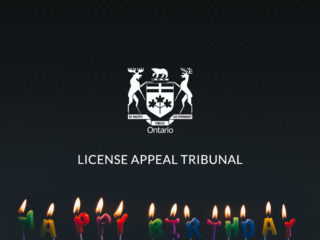The case Snodden v. 2568832, sheds light on the subtle differences between participant and expert witnesses in a dynamic legal context and provides the following important insights:
- When considering the role of a participant witness, observations made from photographs do not meet the necessary standard of “personal observations” as set out in Westerhof. This is because the photographer’s interpretation can influence such observations. Therefore, a report based on media such as photographs, which the witness does not directly observe, typically suggests that the individual is not a participant witness.
A preliminary report that does not strictly comply with formal requirements may still be considered admissible under Rule 53, with leave of the court, provided it satisfies the rule’s substantive conditions.
Facts
The plaintiff experienced a significant oil spill at his residence, necessitating a $400,000 remediation. He subsequently initiated legal action against the fuel supplier and the technician responsible for the upkeep of his oil-burning systems. The trial commenced on November 27, 2023. The plaintiff’s first witness, Michael Flynn, was an expert engaged by the plaintiff’s insurer to investigate the spill’s origin and cause. Mr. Flynn had prepared a preliminary report on October 8, 2018, which did not meet the expert report criteria set by Rule 53.03(2.1). He expressed his intention to produce a final report conforming to these requirements, but this was not completed before the trial’s commencement. Nonetheless, the plaintiff had provided a copy of Mr. Flynn’s resume to the defendant.[1]
Despite the absence of a final report, the plaintiff intended to present Mr. Flynn as a participant expert. However, the defendant challenged this, arguing Mr. Flynn did not meet the criteria for classification as either a participant expert or a Rule 53 expert.[2] In response, Mr. Flynn completed and served an Acknowledgment of Expert Duty (Form 53), as mandated by Rule 53.03 (2.1)(7), to the defendant just before the trial.[3] This was done as a precaution after receiving notice from the defendant’s counsel that they did not agree that Mr. Flynn was a participant expert.[4]
Issue
The issue before the court was three-fold:
- Whether Mr. Flynn qualifies as a participant expert or a Rule 53 expert.
- If Mr. Flynn is a Rule 53 expert, was his report dated October 8, 2018 admissible.
- The scope of Mr. Flynn’s potential expert testimony.[5]
Law and Analysis
A) Mr. Flynn’s Qualification as a Rule 53 Expert
The court focused on applying the Westerhof criteria that is applied to determine whether Rule 53 applies to a proposed expert. They summarized that there are three determining factors (which the court then applied):
- Whether the person has been engaged on or behalf of a party to the litigation
- Whether the opinion to be given is based on the witness’ observation of or participation in the events at issue; and/or
- Whether the witness formed the opinion to be given as part of the ordinary exercise of their skill, knowledge, training and experience while observing or participating in such events.[6]
On the first factor, engagement by a party, plaintiff’s counsel argued Mr. Flynn was not retained on behalf of a party involved in the litigation, as he was hired immediately after the spill and before litigation started. The defendant’s counsel countered that Mr. Flynn was retained by the plaintiff’s insurer, a party in the action due to their subrogation rights. The court agreed with the defendant, citing Westerhof, ruling Mr. Flynn was engaged on behalf of a party and, therefore, did not qualify as a participant expert.[7]
Regarding the second factor, observation or participation in events, the court found Mr. Flynn’s role was limited to reviewing information and documents compiled by others. He did not attend the site or participate in the events, unlike a treating physician or surgeon who might qualify as a participant expert due to direct involvement. The court noted that Mr. Flynn’s observations of photographs taken at the site did not constitute “personal observations” as required by Westerhof, as the photographer’s choices influenced them. Therefore, Mr. Flynn was disqualified as a participant expert.[8]
Thirdly, pertaining to the formation of opinion during events, while acknowledging Mr. Flynn’s expertise, the court found no evidence his opinion was formed during direct observation or participation in the events, leading to his disqualification as a participant expert.[9]
B) Admissibility of Mr. Flynn’s Report
The court addressed Mr. Flynn’s compliance with Rule 53.03(2.1). Given that the report was non-compliant, they considered whether the report could be admissible with leave of the court under Rule 53.08 which states that leave may be granted if the judge is satisfied that:
- There is a reasonable explanation for the failure to comply.
- Granting leave would not cause prejudice to the opposing party that could not be compensated by costs or an adjournment; and
- Admission would not cause undue delay in the conduct of the trial.[10]
The court ruled that the evolving nature of the law around participant and expert witnesses provided a reasonable basis for non-compliance. Additionally, the defendant’s familiarity with Flynn’s qualifications (by virtue of being provided his resume) and the report’s contents negated any prejudice, and its admission was not seen to unduly delay the trial. Therefore, the report was admitted, and Flynn was permitted to testify as an expert in the proceeding.[11]
C) Scope of Mr. Flynn’s Testimony and Qualifications
The defendant objected to Mr. Flynn providing opinion evidence on the standard of care for an OBT and a fuel supplier, as he was neither. Citing White Burgess Langille Inman v. Abbot and Haliburton Co., the court outlined four criteria for expert opinion evidence: relevance, necessity, compliance with exclusionary rules and qualification of the expert.[12]
The court ruled that although specialists in the relevant field usually provide expert testimony on the standard of care, there are circumstances where an expert might be allowed to give evidence on the standard of care of a non-specialist, if it is deemed “necessary, relevant and helpful to the trier of fact”.[13]
Notably, the court recognized that one such situation arose in this case, where the standard of care being addressed by the expert (Flynn) was derived from the expert’s knowledge of the applicable codes and regulations, rather than from personal experience.[14] Consequently, Mr. Flynn was authorized to provide testimony regarding the standard of care for a fuel supplier, as it is principally based on codes and regulations with which he is acquainted. Nevertheless, he was prohibited from testifying about the standard of care for an oil burner technician, a role in which the standard is predominantly reliant on practical skills and specific knowledge.[15]
Conclusion
Ultimately, Mr. Flynn was classified as a Rule 53 expert, with his report deemed admissible. He was authorized to testify on various aspects, including the spill’s origin and cause, compliance with codes and regulations, and the standard of care for a fuel supplier, but not on the standard of care for an oil burner technician.
[1] Ibid at para 34.
[2] Ibid at para 9.
[3] Ibid at para 10.
[4] Ibid at para 41.
[5] Ibid at para 11.
[6] Ibid, at paras 12-15.
[7] Ibid at paras 16-18.
[8] Ibid at paras 19,20.
[9] Ibid at paras 25-27.
[10] Ibid at para 29.
[11] Ibid at para 40-44.
[12] Ibid at para 47.
[13] Ibid at para 54.
[14] Ibid at para 53.
[15] Ibid at para 55.














